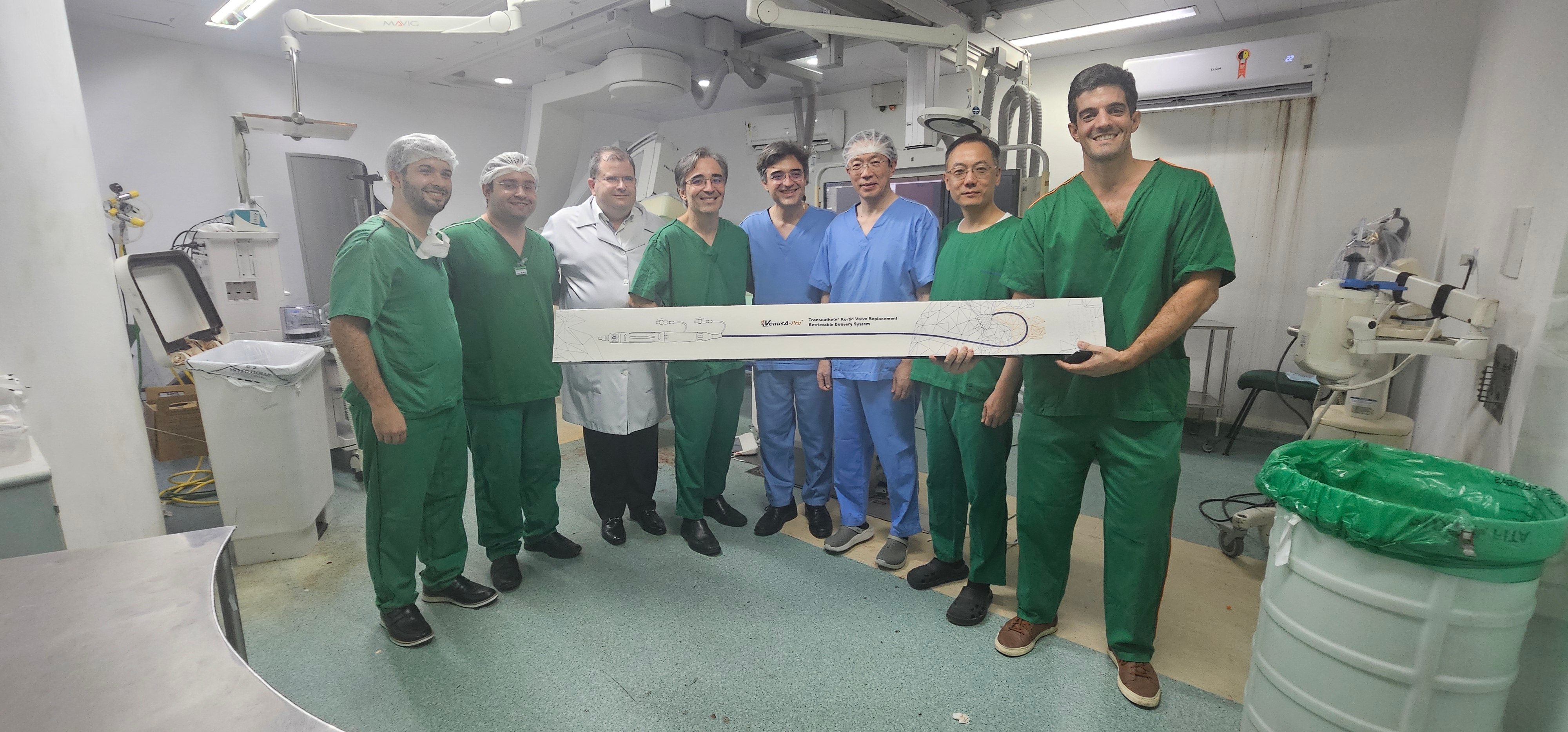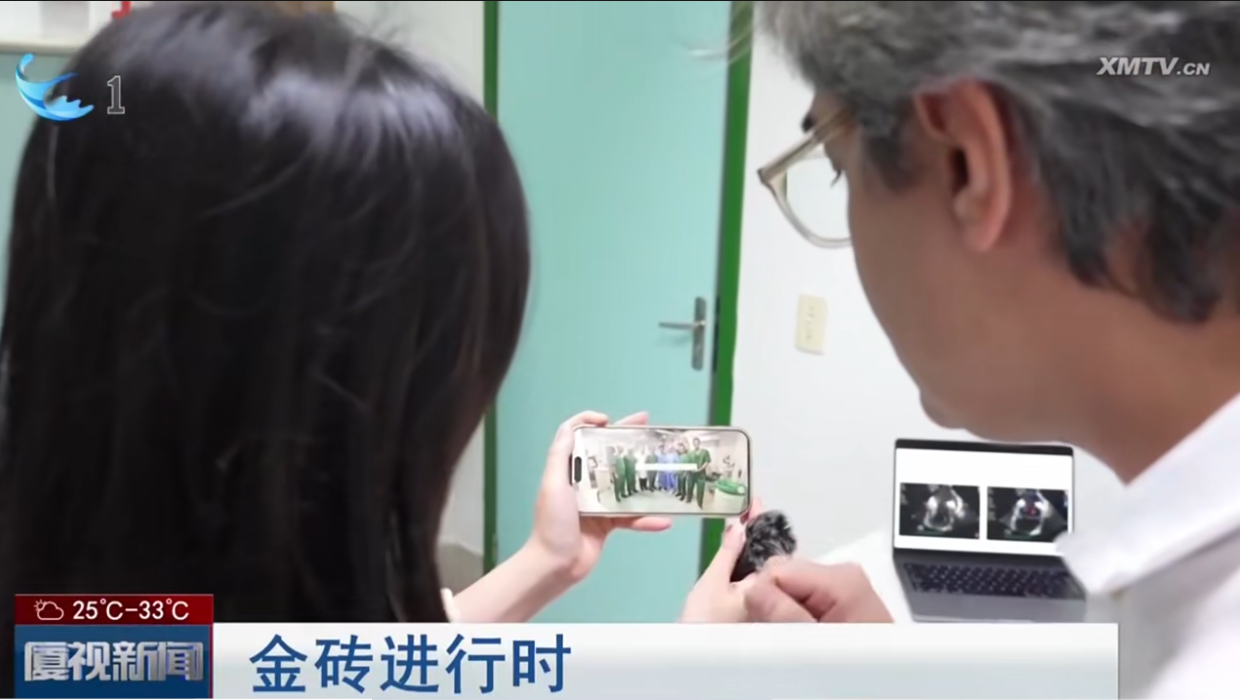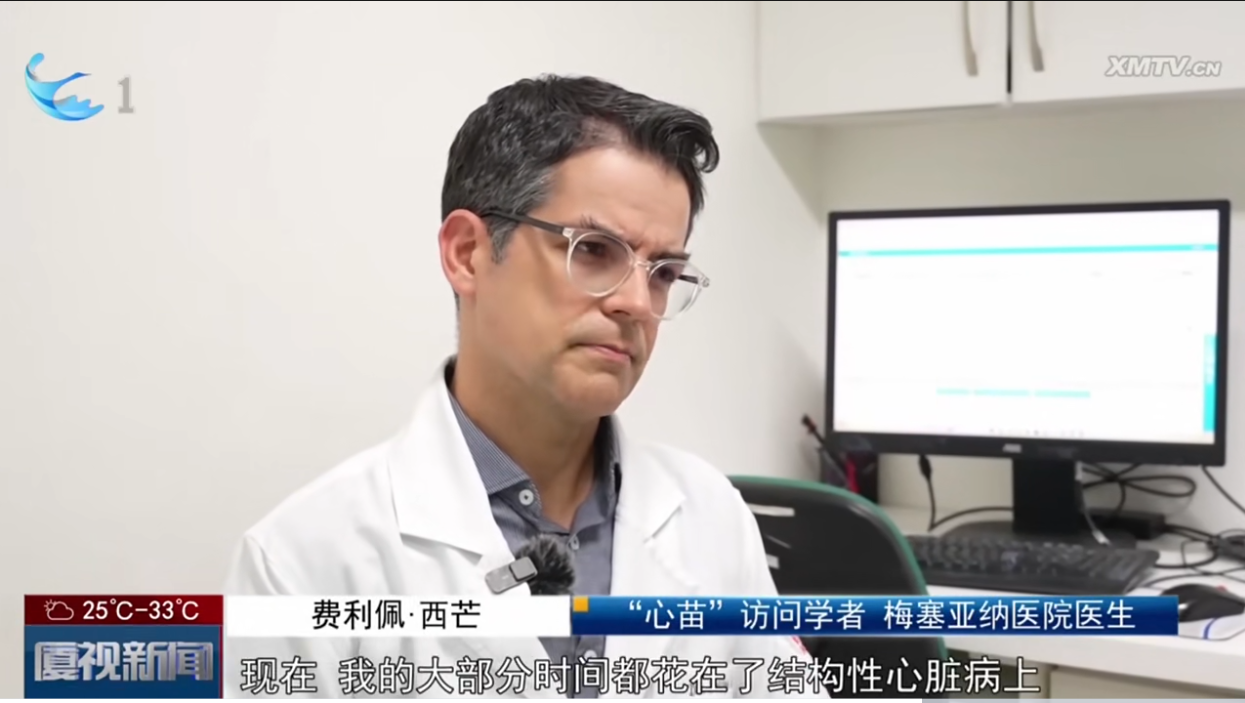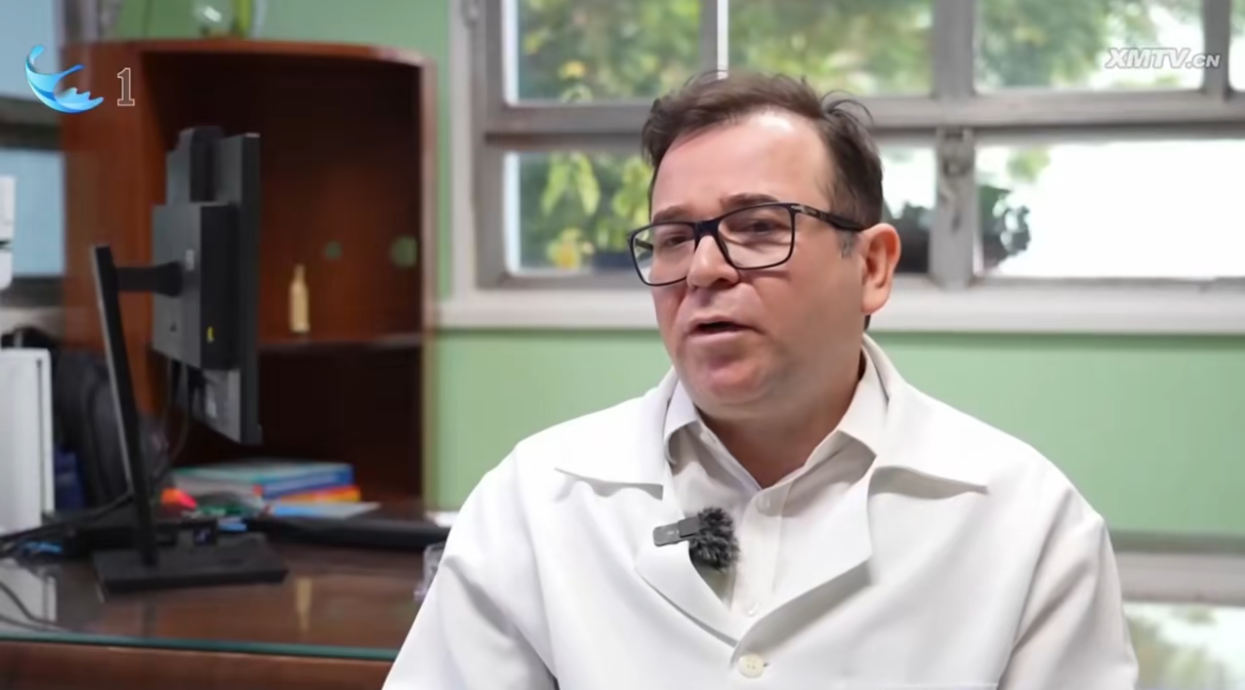XMTV News: BRICS in Progress: The "Heart" Bond of China-Brazil Cooperation
25 August,2025
Hospital de Messejana is one of the most important cardiology specialty hospitals in Ceará, Brazil. Last year, it signed a cooperation agreement with Xiamen Cardiovascular Hospital Xiamen University, launching comprehensive collaboration in cardiovascular disease treatment technologies, medical management, and talent cultivation. During our visit to Fortaleza, our reporting team went into Hospital de Messejana to see how the BRICS twin cities are building bridges through medicine and fostering heart-to-heart exchanges.

Reporter Lin Kaiyue: Everyone, take a look at this photo in my hand. Last year, Xiamen Cardiovascular Hospital Xiamen University and Hospital de Messejana jointly performed a successful transcatheter aortic valve replacement (TAVR) for an elderly patient suffering from aortic stenosis with high coronary risk. This is a group photo of both teams at the time. Meanwhile, Hospital de Messejana also sent a young physician to Xiamen for professional training. One year later, how has Xiamen’s technology been applied in Brazil? Let’s go back for a follow-up.

Hospital de Messejana Dr. Breno Falcão: Hello, this is me.
Dr. Breno Falcão, who participated in the procedure, still vividly remembers the scene. He told reporters that the procedure used the Chinese-made transcatheter valve device VenusA-Pro—the first implantation of a domestically produced Chinese valve device within Brazil’s public healthcare system. In the past, Breno mostly learned about Chinese medical devices online or in journals, but through this joint procedure with Xiamen experts, he was deeply impressed by Chinese-made devices.
Hospital de Messejana Dr. Breno Falcão: At present, we are still using some of the Chinese-made equipment. Not only do they provide us with a better clinical experience, but they also bring patients more ideal prognostic outcomes. I hope there will be more opportunities to collaborate with Xiamen experts and introduce more advanced Chinese medical equipment in the future.
Medical cooperation extends beyond the operating table; it also takes root in the transmission of knowledge. In September 2022, under the opportunity of the BRICS “China Year,” Xiamen Cardiovascular Hospital initiated the founding of the “BRICS Cardiovascular Health Innovation Center.” By the end of that same year, the “Heart Sapling Visiting Scholar Program” was launched, receiving 15–20 foreign trainees each year to study in Xiamen and cultivating global talent to advance cardiovascular treatment worldwide. Dr. Felipe Simão from Hospital de Messejana is one of the beneficiaries of the “Heart Sapling Program.” In October last year, he completed six months of training in Xiamen, bringing back to Brazil his newly acquired expertise in structural heart disease treatment, team collaboration experience, and efficient healthcare service models.

“Heart Sapling” Visiting Scholar, Hospital de Messejana Dr.Felipe Simão: During my study in Xiamen, I was exposed to complex cases every day and experienced the application of high-tech equipment and new treatment approaches. Now, I spend most of my time on structural heart disease. Beyond clinical practice, I actively participate in case discussions and interventions, and I’m also involved in lectures and research. This really motivates me, because I feel that in addition to caring for patients, we are also helping advance knowledge in the field.
Currently, another doctor from Hospital de Messejana is still studying in Xiamen. As of the end of July this year, the “Heart Sapling Program” has already received 27 physicians from 12 different countries. By “bringing in” advanced technologies and “going out” to share experiences, this heart-driven exchange is evolving from medical technology cooperation into a comprehensive system covering talent cultivation, scientific innovation, and discipline building.

Diretor-geral do Hospital de Messejana Adriano Veras: We can see that the scope of BRICS cooperation goes far beyond economics; it continuously releases potential in culture, science, and healthcare. I believe that in the future, China and Brazil will have broad space for collaboration in medical training exchanges, minimally invasive ultrasound procedures, and traditional cardiac treatments.
share
Latest News
-
01 December,2025
Heart Saplings Blossom| Fellows from India and Indonesia Win Awards at International Academic Conferences with Cases from XMCH
-
03 November,2025
“Made-in-China” Robot Performs Cross-Continental Heart Intervention, Achieving a World First in Remote Operations
-
09 October,2025
Accelerating Technology Export | Xiamen experts conduct academic exchanges and demonstrate domestic IVL procedure in multiple hospitals in Pakistan

